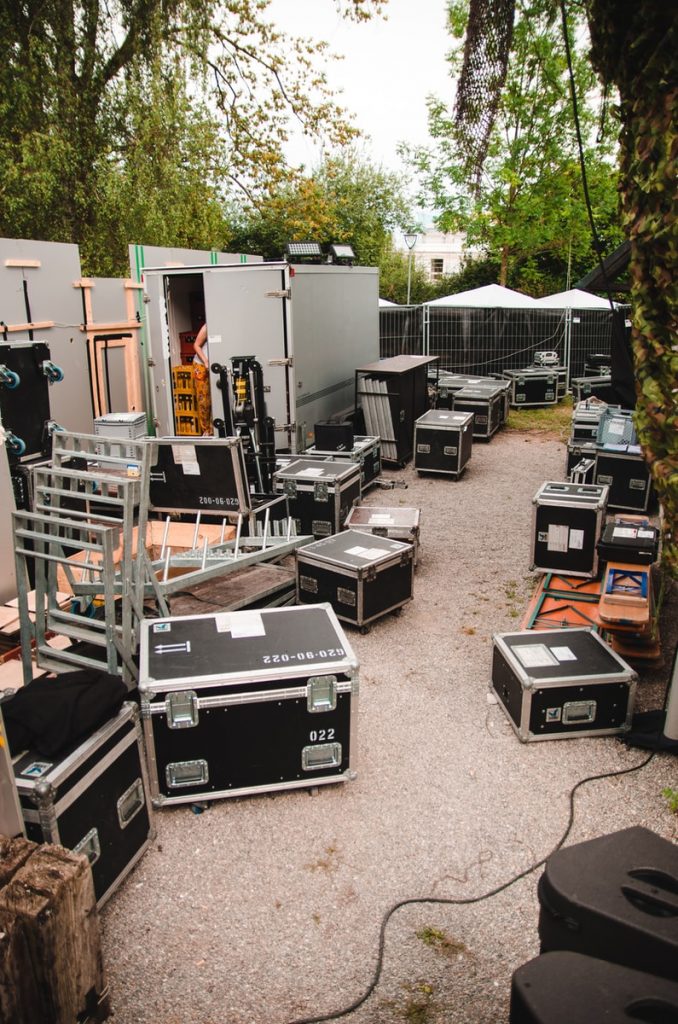
Management for Producers: Don’t corner the opera singer
Developing the right people skills is an essential part of management for producers.
Artistic Management
Producers need management skills. Small show or large, it is still your job to manage the production’s resources. And that includes the humans.
People spend lots of time and money developing themselves as managers. Being an effective manager is the topic of thousands of books.
By all means, go out and read some of these books. Continuing to gain knowledge is important. But, for producers, management requires you to look at things from a particular angle.
Understand your people
We manage people who many consider difficult personalities. There is a reason the word diva gets used for someone who is challenging to work with. Yet it is simplistic to see your staff as problematic people.

Many people who gravitate to working in the arts are passionate. It doesn’t matter whether they are on stage or off (despite the contention of many technicians). If you push the wrong buttons, you may get a meltdown.
If you are someone who came up through the wider industry, you have an advantage. You know what your personnel are going through. A big part of being a good manager is placing yourself in someone else’s shoes so you can see their perspective.
A company manager once told me, ” No matter how nice they are most of the time, remember a performer is like an animal. If you corner, provoke or stress them out, they’ll bite.”
As amusing as that anecdote is for many stage crew, it doesn’t mean there isn’t some insight in the statement. Expose anyone in your production to enough stress, and they’ll crack. The company manager that told that story, was venting his stress and frustration. So ironically, he proved his own point.
The obvious example
Let’s lean into the diva/divo stereotype for a moment because it offers a clear illustration. So your Tenor is proving a problem? Ask yourself what is he facing at this moment?
You know that he is under stress. On opening night, he’ll have to deliver a performance to a large audience. They will expect technical skill and artistic nuance.
Also, the Tenor, being the leading man, may feel the production’s success rests on his shoulders.

As a skilled performer, he may have travelled a long way. He could be living in temporary accommodation and away from his family. Also, many opera singers are only paid if they actually perform. So, an illness as simple as a cold could interfere with his ability to collect his paycheque.
All performers deal with placing themselves in front of an audience, and the risk of failing is part of the job. So performers work hard to manage their fear.
When you look at the stressors in a performer’s career, it is easy to understand where they are coming from. And why it may not take much to tip them into a fight or flight response.
Managing the stress of your staff has a financial impact too. For example, on a movie set, leading actors are well looked after. This helps them stay focussed on the right things and in the best mindset to perform.
If the actor isn’t confident, they may need five takes instead of two. This slows down the day and reduces the footage captured. The more significant the role, the greater the cost of running the set for those extra hours. So, more care is taken to insulate the performer. It pays a production to do this.
Getting past the stereotypes
Managing the stress of your staff has a financial impact too. For example, on a movie set, leading actors are well looked after. This helps them stay focussed on the right things and in the best mindset to perform.
If the actor isn’t confident, they may need five takes instead of two. This slows down the day and reduces the footage captured. The more significant the role, the greater the cost of running the set for those extra hours. So, more care is taken to insulate the performer. It pays a production to do this.
Getting past the stereotypes
Given that many folk rate public speaking as more frightening than death, the example of the performer makes sense. Yet, the model applies to almost everyone who works in the performing arts.
The culture of teamwork is a big part of getting a show on. There is a collective understanding that the show will succeed if we all do our job well. For example, when I worked as a technician, I knew that mopping the floor contributed to the show’s value.
Often our budgets are tight, and our people do a lot of work because they care about the show. As a producer, you need to create an environment that manages distractions and stress.
The performing arts often have a traditional structure and an established hierarchy. Who handles what is very clear and that gets things done. Despite being a creative industry, it can be as structured as the military.

This can be very helpful. A producer can lean on this structure when managing people. Hire the right staff, and they will know their job, then you only have to step in when things go wrong. Still, there are things that a managing producer can control and things they can’t.
You can’t do anything to prevent your lighting designer going through a divorce. Yet, you can make sure the lighting fixtures arrive on time. A typhoon delaying your costume shipment is beyond your control. Giving your wardrobe supervisor good staff isn’t. Let your conductor run over time and you can expect to pay the orchestra overtime!
Looking after your people is very different to indulging in bad behaviour. Someone who won’t perform without fancy spring water in their dressing room is just unprofessional. Unless someone included that in the rider.
Concrete steps as a manager
1. Listen
When they need to talk, have questions, or even complain, you should listen. What they say tells you a lot. At best, they’ll give you helpful information from their expert perspective. At least, you’ll know their mood and their corresponding stress level.
2. Respect the opinions of your experts
You hired these people because of their skills. They have experience in a specialist area which exceeds your own. You’d be a fool not to listen to them on that subject.
Of course, as a producer, you may have information they don’t. If it can help them and you can share it may help the whole project. If that’s the case, then …
3. Take time to communicate
If you can’t give someone what they want, explain why. Don’t just say no and send them away. Instead, try and offer reasons to explain the decisions you’ve made. Sometimes, offering clarity about decisions and direction can turn an adversary into an ally.
4. Be consistent
Stick to your guns when you make a decision. Don’t change your plan to make someone happy. If you draw a line, then be firm about not crossing it. If you say no, then do it clearly. Explain why but don’t make excuses.

Hold up your end as a producer
Management for producers means providing the most effective environment for your people. Doing this is reliant on doing the basics well.
So keep it simple. Communicate, listen and do your best to be consistent. Pay according to the agreed timeline and can be clear about what you can offer at the beginning. Be honest, direct, and understanding.
It is always a mistake to assume a person is being difficult. Take time to think about their challenges and ask them what you can do.
Remember, if you corner an animal, you will get bitten.
Check out our road map articles next.